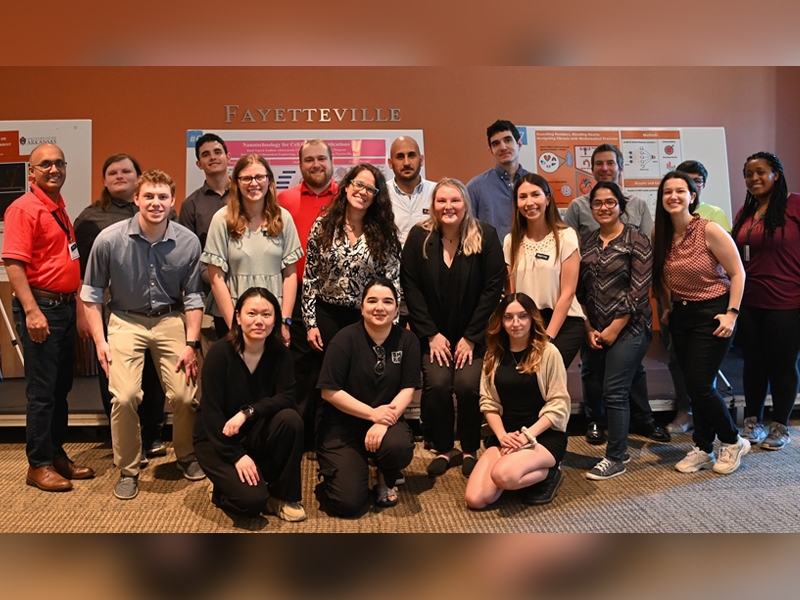The Department of Biomedical Engineering Community and Student Engagement Committee organized the first "Biomed ENGAGE" conference earlier this summer to provide graduate students an opportunity to engage with the public and present their research in an open public forum.
Held at the Fayetteville Public Library, the conference showcased a range of topics from regenerative medicine, genome engineering, neural engineering, biomedical imaging, machine learning and organ-on-chip platforms.
Professor Raj Rao said the conference was conceived, in part, to educate the community about the importance of biomedical research in particular and scientific research in general.
"Training the next generation to constantly advocate for research in today's world is extremely important. Equally important is communicating the impact of research and how it relates to our daily lives," said Rao, chair of the committee.
According to the American Institute for Medical and Biological Engineering, a nonprofit organization that represents the most accomplished people in the field of medical and biological engineering, many educational programs are undergoing tremendous change as the fields grow and take on new shapes, as research funding becomes more difficult to secure and as the student population, and their desired academic experiences, shifts. The institute notes an urgent need for all stakeholders to advocate for medical and biological engineering and its benefit to society.
Under the leadership of Jeffrey Wolchok, head of the Biomedical Engineering Department, the department has invested in the Community and Student Engagement Fellowship. Fellows are chosen based on their leadership potential and ability to contribute to new initiatives and programs.
Three fellows serving a two-year term are Alexis Applequist, Wenbo Xu and Katherine Miranda Munoz. In this capacity, the fellows coordinate with Rao and assistant professor Leonard Harris to determine best approaches for community engagement, student success and wellness and to contribute to creating a more equitable, diverse and welcoming place to learn, work and conduct multidisciplinary research across intellectual boundaries.
Applequist, a Ph.D. candidate, emphasized the need for clear communication between scientists and the community at large.
"As graduate students in STEM, effectively communicating our work and its significance is critical. However, many of us have only honed this skill in very technical settings, such as academic research conferences, with peers from similar fields," she said. "It is impossible to inspire the next generation and connect with our communities if we cannot explain our science in understandable terms. This conference provided a unique opportunity to enhance our scientific communication skills, enabling us to share our valuable research with the broader community."
The following graduate students received recognitions for their efforts at the conference:
- Alexis Applequist — most impactful research (Mentor: Kartik Balachandran)
- Anelisse Claros Mendieta — best presenter (Mentor: Jeffrey Wolchok)
- Arianna Ortega Sanabria — best poster (Mentor: Ranu Jung)
- Amira Amin — committee pick for engagement (Mentor: Will Richardson)
"This was a fantastic event," Wolchok said. "I applaud the community engagement fellows and Dr. Rao for both conceiving and organizing it."
Learn more about the Department of Biomedical Engineering's Community and Student Engagement Committee.
Topics
Contacts
Alex Wayne, operations manager
Department of Biomedical Engineering
479-718-3374,
